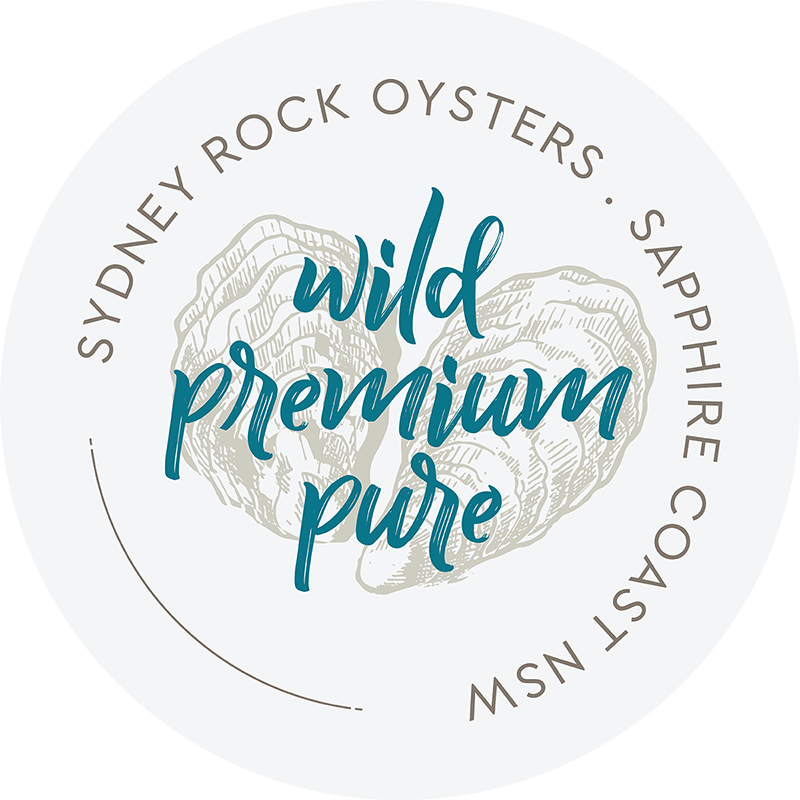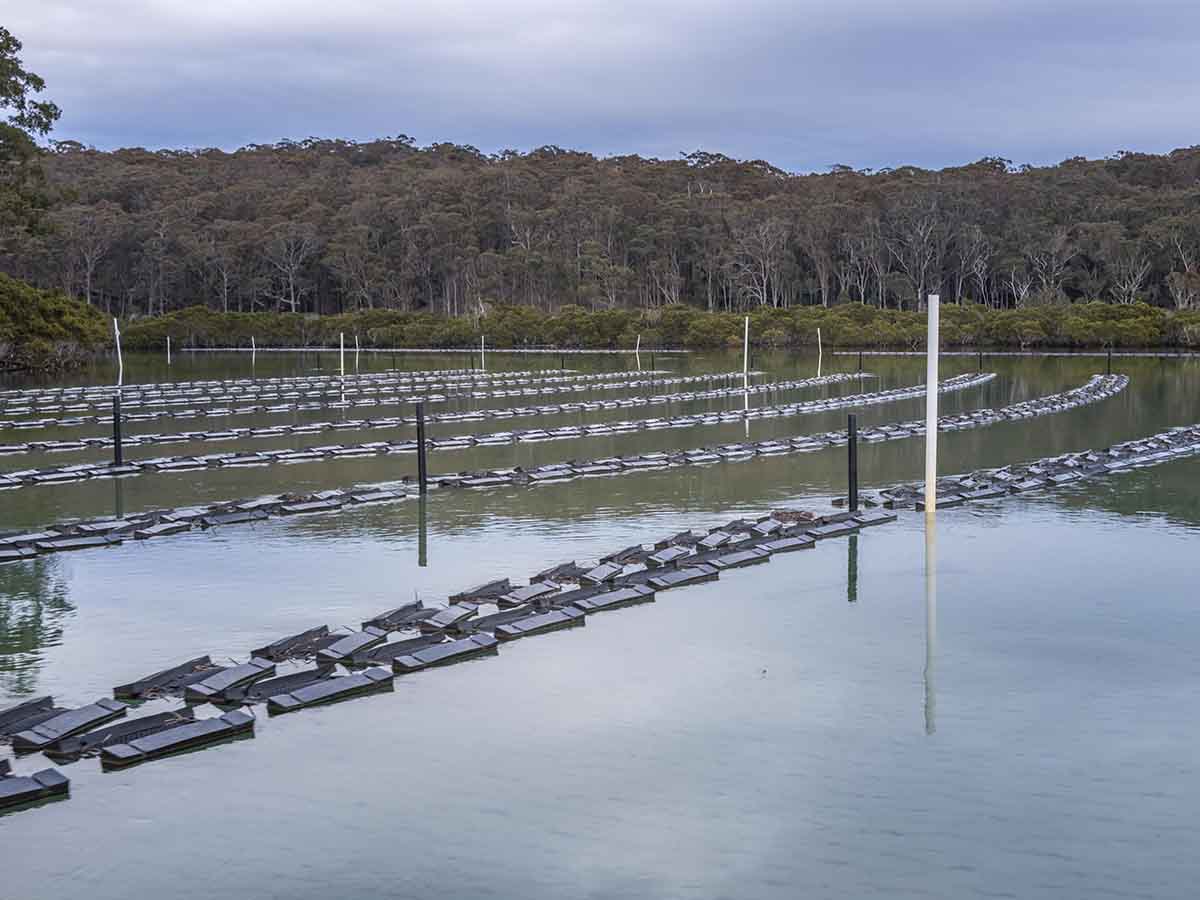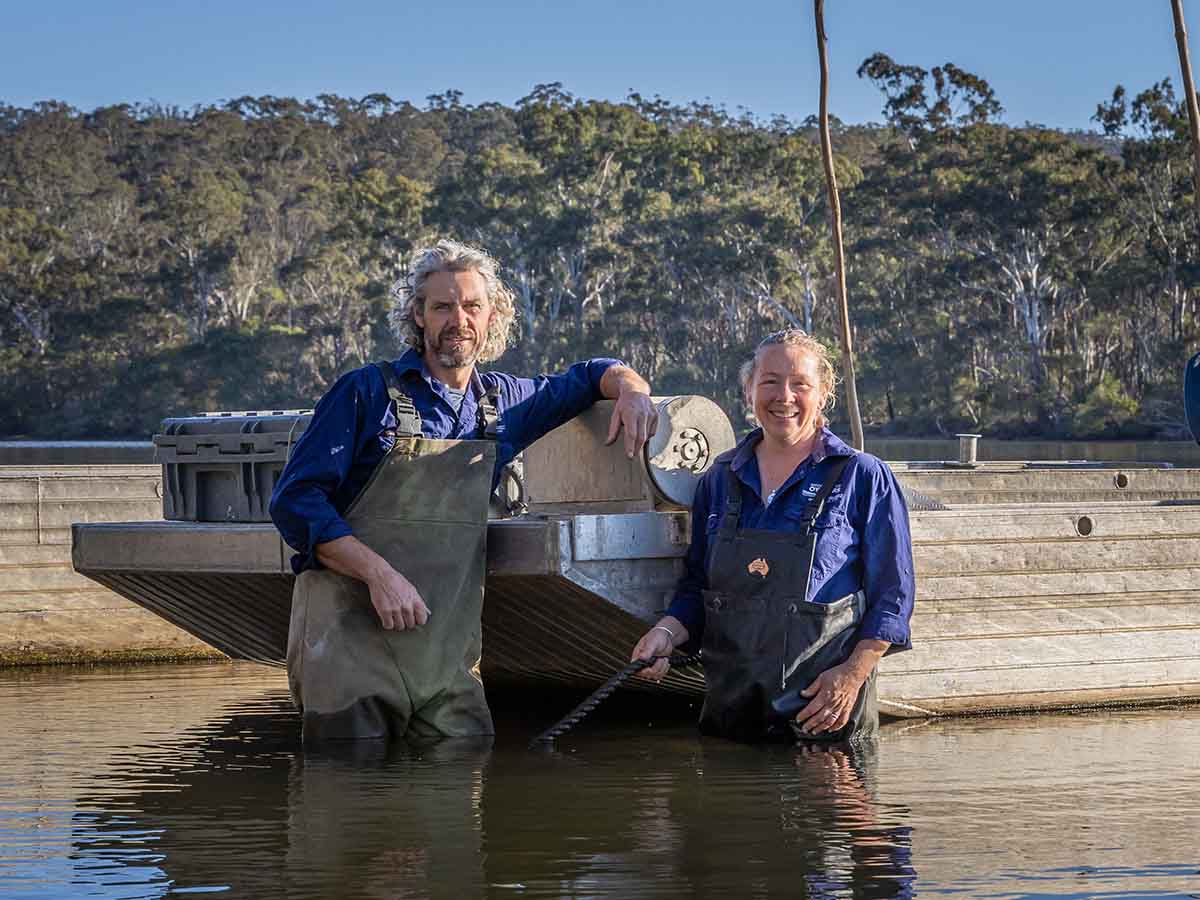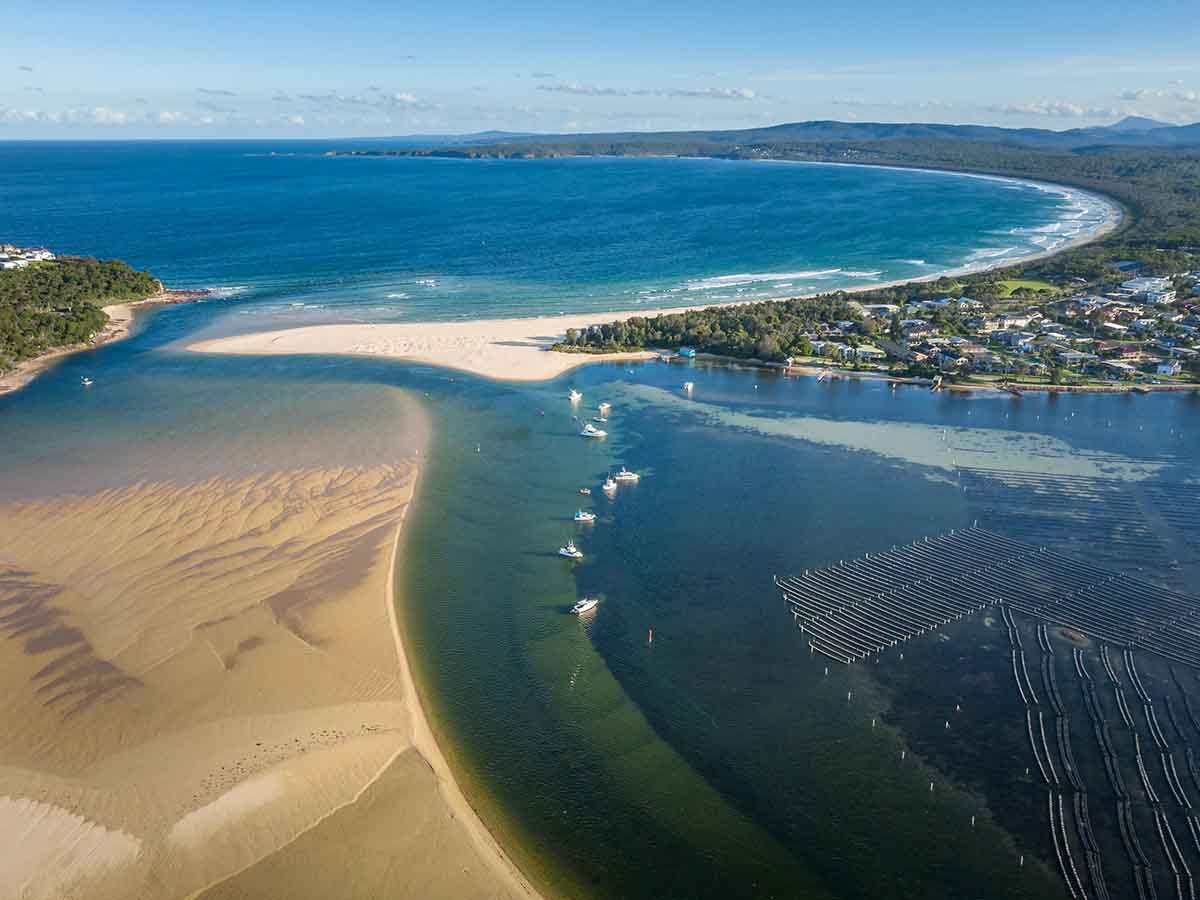Environment
Sydney rock oysters of the Sapphire Coast region are highly awarded, testimony to the quality of our estuaries as well as our farming practices. Not only do oysters require a healthy environment in order to thrive, they also help to actively improve the condition of our waterways. Oysters keep the health of our estuaries in check, under the watchful eye of our local farmers.
EnvironmentAL BENEFITS
ECOLOGICALLY SUSTAINABLE FARMING
Oyster cultivation is one of the most ecologically sustainable types of farming because, unlike fish farming, oysters do not require artificial food sources. Oyster growers rely on the natural environment and sunlight to supply the nutrients and food particles to produce the optimum food mix on which oysters thrive.
FILTRATON CAPACITY
A single oyster can filter a small bathtub of water every day! Oysters gather their food by filtering large volumes of water (20L per oyster per day) from the waterways. This filtration capacity helps to clean the water by removing particulate matter, enhancing water clarity and promoting seagrass, saltmarsh and mangrove health.
CANARIES OF THE WATERWAYS
Oysters are the ‘canaries’ of the waterways – if the oysters are healthy, it indicates that the waterways are healthy.
NOT JUST DELICIOUS
Oysters are not only delicious but are also considered to be one of the most nutritionally balanced foods available. Oysters are 99% fat free, contain less than 0.03% cholesterol and are rich in vitamins, minerals (especially zinc) & Omega 3 fatty acids.
WATER QUALITY MONITORING
As part of the NSW Quality Assurance Program, oyster farmers are constantly monitoring the quality of the water and their oysters. Their diligence means that any unexpected pollution entering a lake is quickly identified and managed, ensuring the water is clean and safe for fishers, swimmers and other users of the lake, as well as oyster consumers.



